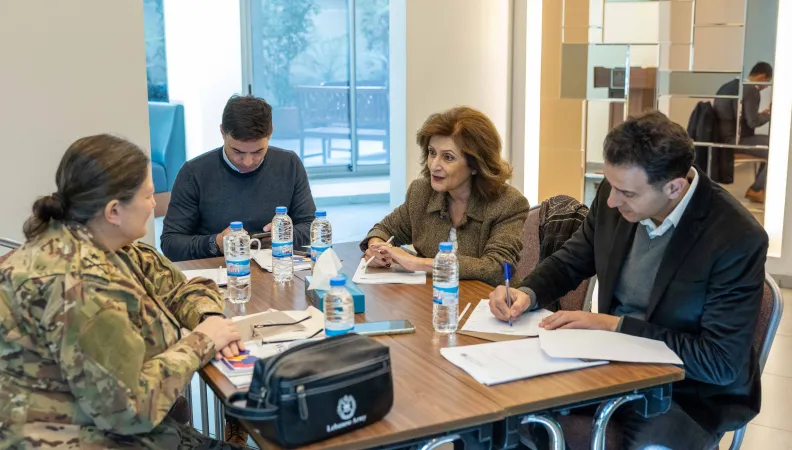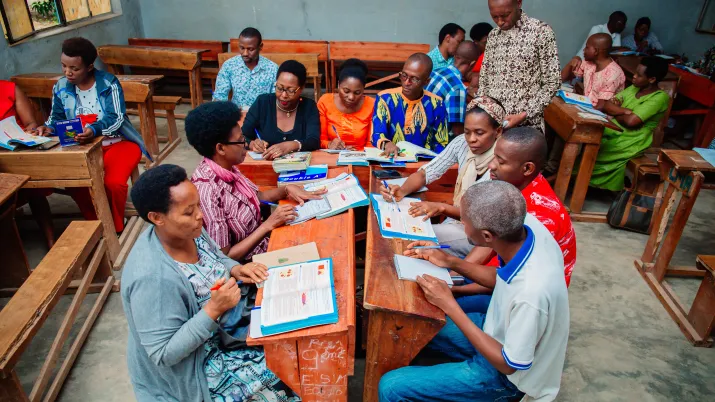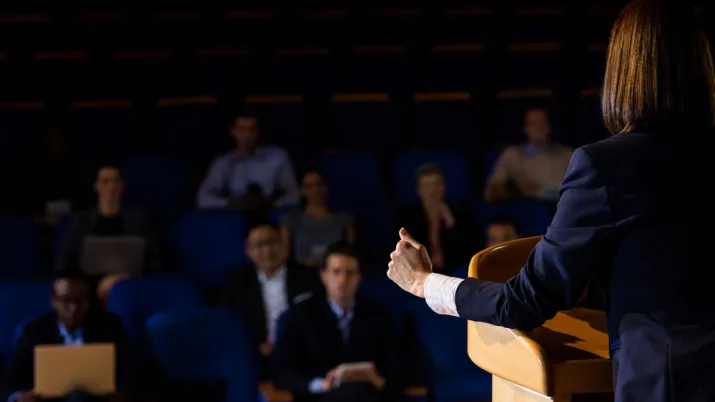Share the page
WE-HUB Lebanon: Empowering Women in Lebanon
Project
Published on

-
Project start date
-
Status
Ongoing
-
Project end date
-
-
Financing amount (Euro)
-
6m
-
Country and region
-
Lebanon, Middle East
-
Funders
-
Partners

The WE-HUB Lebanon project aims to increase women’s participation in the political and public sphere, enable better engagement of women in the workforce, and enhance legislative reform to protect women from all forms of violence.
The EU committed to empowering women
The EU 2021 Joint Communication on a “Renewed partnership with the Southern Neighbourhood - A new Agenda for the Mediterranean” underlines the importance to give special attention to the promotion of the role of women in society and the economy as part of a renewed commitment to the rule of law, human and fundamental rights, equality, democracy and good governance.
The Gender Action Plan (GAP) III scales up the EU contribution to reach SDG 5 in all EU internal and external policy areas and across the 2030 Agenda. In line with these policy areas, the European Commission has adopted in 2022 the Action “Women Empowerment Hub in Lebanon (WE HUB)” financed under the Neighbourhood, Development and International Cooperation Instrument (NDICI-Global Europe).
WE-HUB: promoting women empowerment in Lebanon
The WE-HUB project aims to promote the advancement and empowerment of women for effective realization of gender equality. It is structured around three specific objectives:
- increase women’s participation in the political and public sphere
- enable better engagement of women in the workforce,
- enhance legislative reform to protect women from all forms of violence.
1. Increase women’s leadership and participation in political and public sphere
Thanks to WE-HUB, women will feel more empowered to engage in political life and become increasingly visible in public spaces. Through this empowerment, they will gain valuable competencies, expand their networks, and build the confidence and legitimacy needed to actively participate in decision-making processes.
Additionally, policy dialogue at the national level will be strengthened, contributing to a political and legislative framework that is more aligned with gender equality principles.
2. Foster an enabling environment for better engagement of women in the workforce
At the end of the project, women and civil society will be better equipped to address discriminatory social norms and gender stereotypes. As a result, policies informed by evidence-based information and recommendations to combat gender discrimination and inequalities will be adopted by various stakeholders on a systemic level.
Additionally, more women will gain access to employment and entrepreneurship opportunities, particularly in non-traditional and unconventional sectors, further promoting gender equality and economic empowerment.
3. Enhance key legislative reform and measures that protect women from all forms of violence
Actors in the field of protection will provide better services to survivors of gender-based violence (GBV), with improved coordination between these actors and NGOs. This collaboration will lead to enhanced access to justice for GBV survivors.
Additionally, the existing legal framework for the protection of women from violence will be more effectively enforced, ensuring stronger legal support and safeguards for those affected by violence.
Roles and responsibilities in the project
The WE-HUB project involves a wide range of stakeholders. Expertise France and GIZ are responsible for implementing the project’s activities:
- Expertise France is in charge of the overall coordination of the project and donor reporting and operates within the framework of objectives 1 and 3.
- GIZ fosters women engagement into the workforce, as part of the second area of operation of the project.
The project is overseen by a steering committee composed of representatives from the EU, the National Commission for Lebanese Women and Expertise France. It may also involve partner ministries, experts or NGOs according to the agenda.
Many actors from the Lebanese society will benefit directly or indirectly from the actions implemented within the project:
- Women, men and youth
- Professionals in the line of protection for GBV survivors: judges (prosecutors, instruction and court specialized in domestic violence), police officers, forensic doctors, social workers, etc.
- Municipalities
- National and local NGOs, civil society organizations
- Members of the Parliament calling for reform (women and men)
- The Lebanese National Gender Observatory
- The National Commission for Lebanese Women
- Private sector Academia and research institutes
- Chambers of Commerce
Sustainable Development Goals
SDG5 - Gender equality
Achieve gender equality and empower all women and girls

Similar projects
SoNG – The Ocean and the Land for the People
Ongoing
2025 - 2030
Funders : Agence Française de Développement
PEERS - Africa-Europe Partnership to Exchange on Education Reforms
Ongoing
2025 - 2030
Funders : European Union





